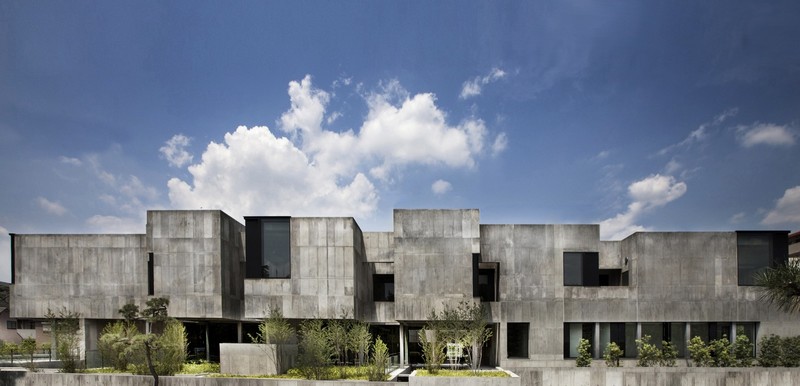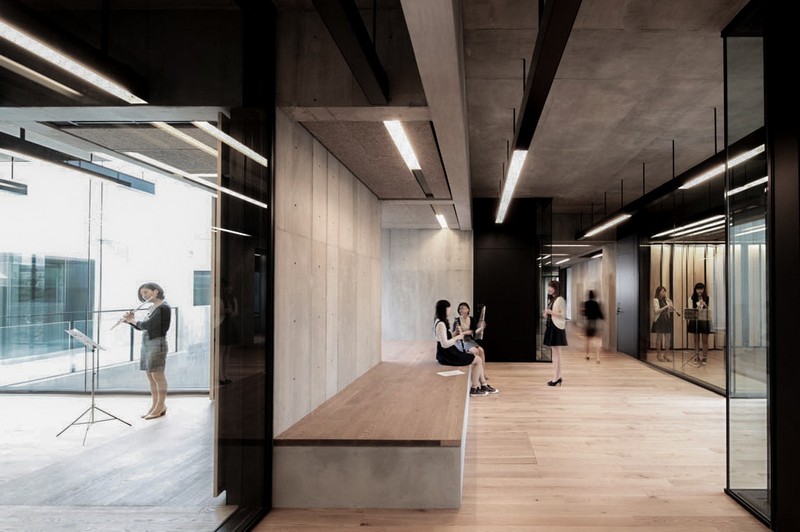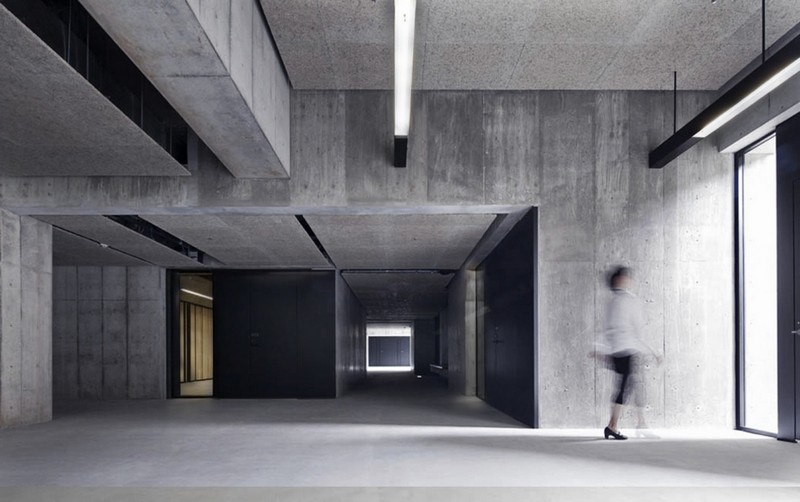Boasting household names such as the former Boston Symphony conductor Seiji Ozawa and pianist Minoru Nojima among its alumni, the Toho Gakuen School of Music distinguishes itself architecturally as an unpretentious and functional building that offers students and faculty a plethora of rooms for practice. The suburban building’s basement and the second floor are installed with girder grids to allow flexibility in laying out the practice rooms, so they can each maintain their acoustic independence. Indeed, instead of rows and rows of prison-cell-like enclosures, the rooms, connected by irregular hallways much to the likeness of labyrinthine alleyways, are arranged as houses in a medieval city.

To enhance acoustics within each room, wood panelling is fitted on many of its concrete walls. However, the cubist structure that is dominated by concrete and wood is interrupted by a surprisingly large number of glass walls, affording the users of this facility visual connection to one another while keeping adequate soundproofing and allowing natural light to fill the rooms. The hallways not only function as conduits between different spaces, they act as invitations to explore the rest of the building.
The musicians’ isolation during hours of practice is further compensated by increasing affordance in the common area. Hallways, recesses, or staircases are designed to be potential spaces for practice, as students may make use of the communal spaces for informal rehearsal and conversation. Musicians may also take advantage of different acoustic conditions created by the irregular shapes of the communal spaces, as opposed to the rectangular, and much more predictable and controlled, practice rooms. Music playing links the privacy in the individual practice rooms to the openness in the common area, allegorising music’s role in the real world as a force that bridges differences.

The building’s first floor houses teaching staff offices, a health clinic, instrument storage, conference facility, general office, service counters, and other student amenities. The building is as functional as it is elegant, and contributes a tangible personality to this multi-building specialty school outside of Tokyo.
The Toho Gakuen School of Music won the World Architecture Festival award in the 2015 Higher Education and Resear ch category.













